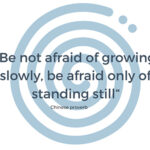| August 2021 |
DOES THE BEST PERSON FOR THE JOB ALWAYS GET THE JOB?

It’s often a photo finish
WRITTEN BY: Michelle White
Does the best person for the job always get the job? – Yes but it might not be as simple as it looks …
I had a long conversation with a client who was devastated as a particular role he applied for was not offered to him. He was convinced he was “the best man for the job” and felt “I could do the job blindfolded.” A few weeks later he happened to see who was appointed to the position and was really puzzled. The successful candidate did not fit the job description initially advertised and was way less experienced than was asked for.
It could be quite gut wrenching to get to the end of the selection process, only to find another candidate had been chosen. Your instinct is to look at the advert or the job description and wonder why you had not been the preferred candidate as you obviously match the requirements and are able to do the job.
On paper you very well could have been the ideal for the role … however…
Initially your skills, experience and sometimes qualifications serve as the first line of shortlist. Your resume illustrates how you have developed your skills and gives insight into the depth of your knowledge and competency.
In the initial interview, your ability to “do the job” and suitability for the role, the hiring team has in mind, is assessed. Your particular skillset required for that role is investigated and the value your expertise can bring to the company identified.
Careful consideration is given to your expectations which could include blue sky, growth and developmenttimeframes as well as remuneration package.The team, if applicable, spend time with you to ensure common ground and compatibility. Your referees are often contacted to endorse your skills and deliver examples of performance to differentiateyou from others.
“There are many reasons beyond the ability to do the job that come into a hiring decision”
“…BUT THE SUCCESSFUL CANDIDATE DID NOT FIT THE JOB DESCRIPTION”
In this time of meeting with other candidates and verifying salaries and references there are many decisions made behind the scenes. This means the role, as initially outlined, can change and the team could take on a different direction than initially thought. That job description was drawn up on paper by a hiring manager who thought the requirements would best suit that position. Now the team has been exposed to a variety of individuals who each present a particular and unique offering.
In addition, the organisation might not be in a position to deliver on your expectations, timeframes for growth might not be possible or in line with the current structure and your salaryexpectations might be out of line.There could be budget constraints or project deadlines which do not match with your requirements and the team might have a specific skills gap which is not your absolute strength.
As a candidate you will not receive this feedback so bluntly as the company is thinking about their reputation, the privacy of the successful candidate, the potential to say something which could be contested and so on.
Obviously as a candidate you want to make sure that if you weren’t success for a position that you wanted that you review everything you did to make sure you learn for the future. However, remember that there are many reasons beyond the ability to do the job that come into a hiring decision and that your control on some of these factors and your insight into what is going on behind the scenes is limited.











